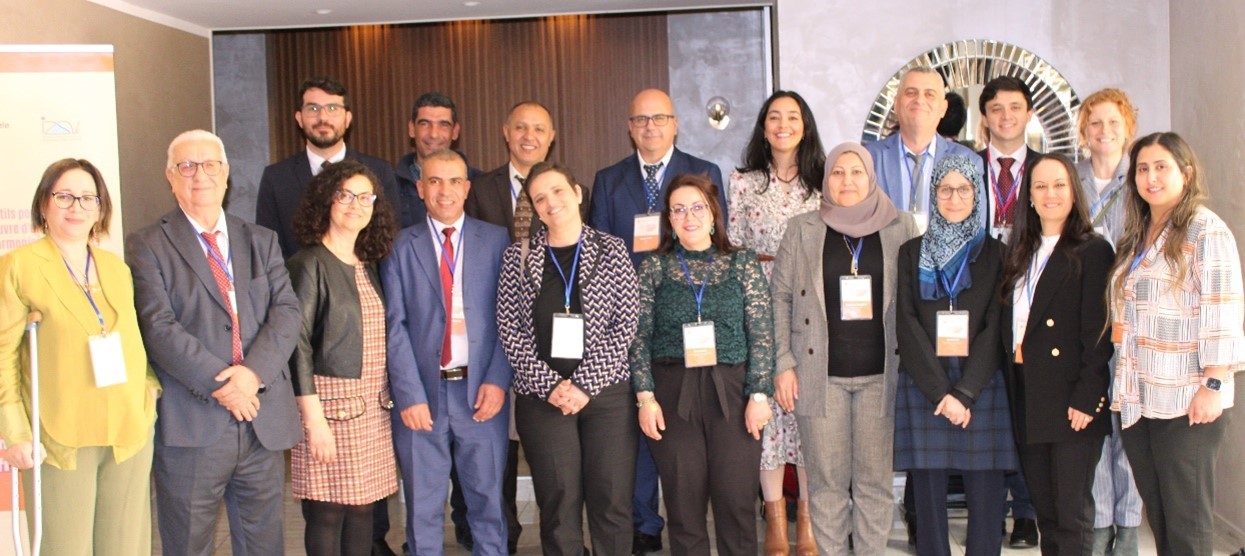
Dr. Rachid Bouguedour, Sub-Regional Representative of WOAH-SRR -NA. Photo (c) N.Brik (WOAH) 2025
On 29 and 30 April 2025, in Tunis, Tunisia, the WOAH Sub-Regional Representation for North Africa hosted the launch workshop of the “RabTool” project: “Tools for the Implementation of a Harmonised Dog Rabies Control Programme in North Africa”, aimed at supporting rabies control efforts in Algeria, Morocco and Tunisia.
Dr. Rachid Bouguedour, WOAH Sub-Regional Representative for North Africa, Dr. Paola De Benedictis from the IZSVe (Istituto Zooprofilattico Sperimentale delle Venezie), and Dr. Wafa Ben Hamouda, Director of Health at the General Directorate of Veterinary Services (DGSV) in Tunisia, warmly welcomed participants to the project’s launch workshop. In their opening remarks, they emphasised the importance they attach to the success of this initiative.
Partners from the Italian Ministry of Health and the Global Alliance for Rabies Control (GARC) also actively participated in the workshop online.
The RabTool project aims to strengthen the capacities of the three countries to achieve the goal of global rabies elimination by 2030. RabTool is structured around three main pillars:
The launch workshop provided an opportunity to present these objectives and to engage the beneficiary countries in a participatory process to discuss challenges and opportunities, with the aim of strengtening regional action for the elimination of canine rabies, while considering each country’s priorities and tailored support needs.
Experts provided a detailed presentation of the WOAH support tools for rabies control, highlighting the key resources and strategies made available to strengthen control efforts. They also shared the valuable expertise contributed by the project partner, IZSVe, as well as the support provided by GARC, underlining the importance of this international collaboration in achieving the goal of eliminating rabies.
During the two-day RabTool project launch workshop, representatives from the Ministries of Agriculture (rabies focal points), Health, and Interior (or Home Affairs) of each country actively participated in group work and panel discussions.
These sessions enabled constructive exchanges on positive experiences, identified gaps, and major challenges faced in canine rabies control, particularly in the areas of surveillance, communication, strategic planning, and the tools required.
Guided by IZSVe experts, the discussions reflected a strong commitment from the three ministries in each country, with an integrated One Health approach emphasizing the need for intersectoral collaboration. These exchanges also underscored the importance of a participatory and collaborative regional approach aimed at enhancing communication and sharing information among the concerned countries.
Participants stressed the need for ongoing dialogue and effective coordination to overcome obstacles, maximise the impact of undertaken actions, and ensure the sustainability of efforts within the framework of the project.
Countries represented at the training were:



